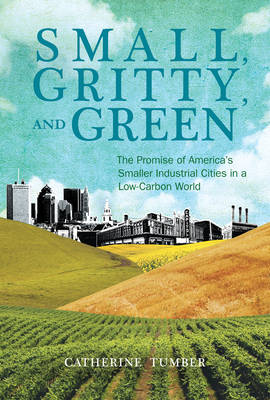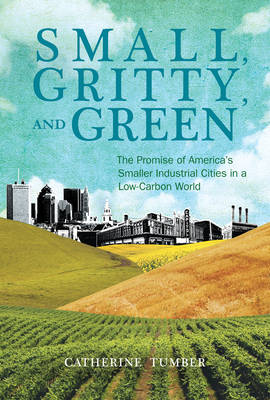
- Afhalen na 1 uur in een winkel met voorraad
- Gratis thuislevering in België vanaf € 30
- Ruim aanbod met 7 miljoen producten
- Afhalen na 1 uur in een winkel met voorraad
- Gratis thuislevering in België vanaf € 30
- Ruim aanbod met 7 miljoen producten
Small, Gritty, and Green
The Promise of America's Smaller Industrial Cities in a Low-Carbon World
Catherine TumberOmschrijving
America's once-vibrant small-to-midsize cities--Syracuse, Worcester, Akron, Flint, Rockford, and others--increasingly resemble urban wastelands. Gutted by deindustrialization, outsourcing, and middle-class flight, disproportionately devastated by metro freeway systems that laid waste to the urban fabric and displaced the working poor, small industrial cities seem to be part of America's past, not its future. And yet, Catherine Tumber argues in this provocative book, America's gritty Rust Belt cities could play a central role in a greener, low-carbon, relocalized future.
As we wean ourselves from fossil fuels and realize the environmental costs of suburban sprawl, we will see that small cities offer many assets for sustainable living not shared by their big city or small town counterparts, including population density and nearby, fertile farmland available for new environmentally friendly uses.
Tumber traveled to twenty-five cities in the Northeast and Midwest--from Buffalo to Peoria to Detroit to Rochester--interviewing planners, city officials, and activists, and weaving their stories into this exploration of small-scale urbanism. Smaller cities can be a critical part of a sustainable future and a productive green economy. Small, Gritty, and Green will help us develop the moral and political imagination we need to realize this.
Specificaties
Betrokkenen
- Auteur(s):
- Uitgeverij:
Inhoud
- Aantal bladzijden:
- 256
- Taal:
- Engels
- Reeks:
Eigenschappen
- Productcode (EAN):
- 9780262525312
- Verschijningsdatum:
- 13/09/2013
- Uitvoering:
- Paperback
- Formaat:
- Trade paperback (VS)
- Afmetingen:
- 145 mm x 221 mm
- Gewicht:
- 340 g

Alleen bij Standaard Boekhandel
Beoordelingen
We publiceren alleen reviews die voldoen aan de voorwaarden voor reviews. Bekijk onze voorwaarden voor reviews.











